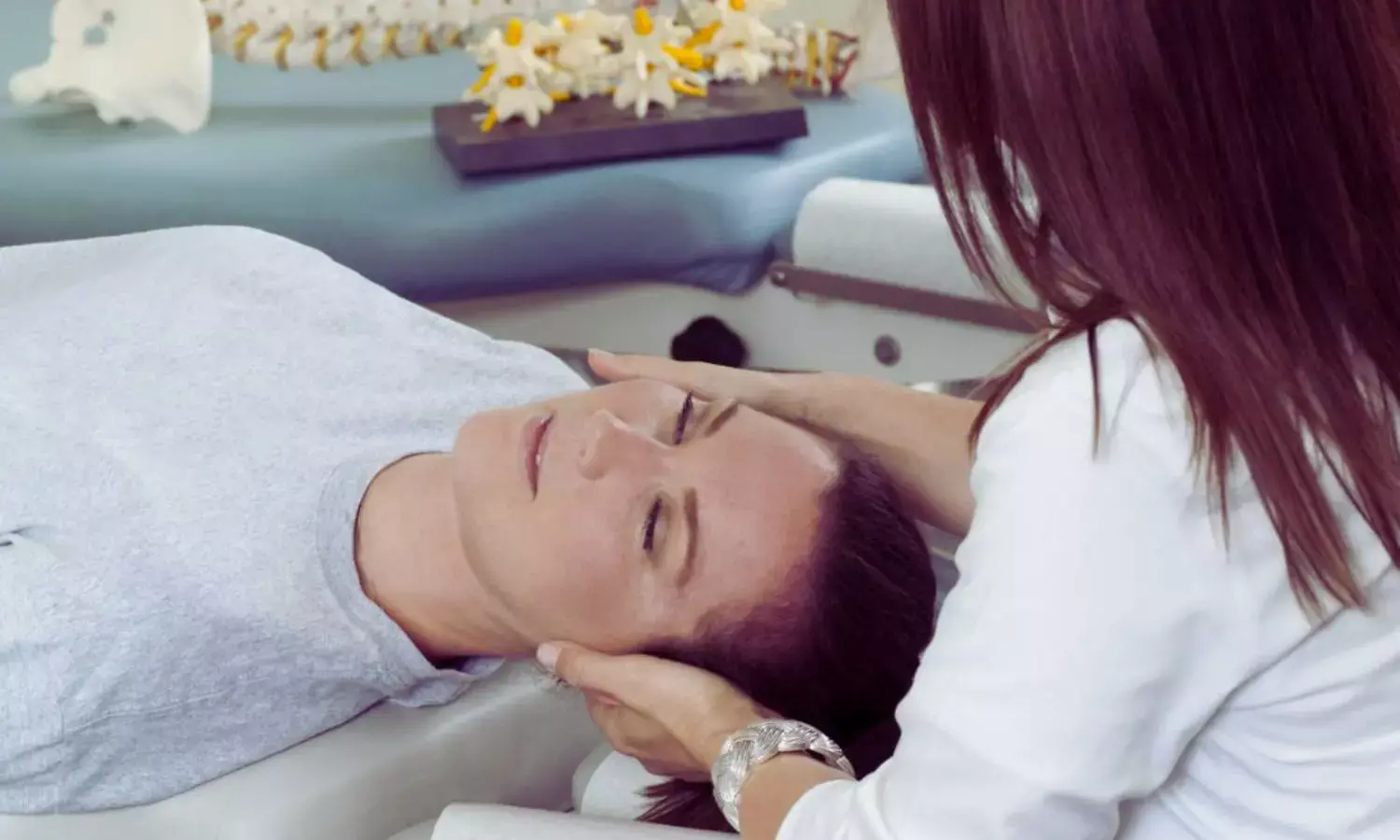- Home
- Medical news & Guidelines
- Anesthesiology
- Cardiology and CTVS
- Critical Care
- Dentistry
- Dermatology
- Diabetes and Endocrinology
- ENT
- Gastroenterology
- Medicine
- Nephrology
- Neurology
- Obstretics-Gynaecology
- Oncology
- Ophthalmology
- Orthopaedics
- Pediatrics-Neonatology
- Psychiatry
- Pulmonology
- Radiology
- Surgery
- Urology
- Laboratory Medicine
- Diet
- Nursing
- Paramedical
- Physiotherapy
- Health news
- Fact Check
- Bone Health Fact Check
- Brain Health Fact Check
- Cancer Related Fact Check
- Child Care Fact Check
- Dental and oral health fact check
- Diabetes and metabolic health fact check
- Diet and Nutrition Fact Check
- Eye and ENT Care Fact Check
- Fitness fact check
- Gut health fact check
- Heart health fact check
- Kidney health fact check
- Medical education fact check
- Men's health fact check
- Respiratory fact check
- Skin and hair care fact check
- Vaccine and Immunization fact check
- Women's health fact check
- AYUSH
- State News
- Andaman and Nicobar Islands
- Andhra Pradesh
- Arunachal Pradesh
- Assam
- Bihar
- Chandigarh
- Chattisgarh
- Dadra and Nagar Haveli
- Daman and Diu
- Delhi
- Goa
- Gujarat
- Haryana
- Himachal Pradesh
- Jammu & Kashmir
- Jharkhand
- Karnataka
- Kerala
- Ladakh
- Lakshadweep
- Madhya Pradesh
- Maharashtra
- Manipur
- Meghalaya
- Mizoram
- Nagaland
- Odisha
- Puducherry
- Punjab
- Rajasthan
- Sikkim
- Tamil Nadu
- Telangana
- Tripura
- Uttar Pradesh
- Uttrakhand
- West Bengal
- Medical Education
- Industry
Combo of Epley maneuver and dizzy-fix training device yield remarkable treatment outcomes for BPPV management: Study

India: Benign paroxysmal positional vertigo (BPPV) affects millions worldwide, causing episodes of dizziness and imbalance triggered by changes in head position. While the Epley maneuver has been a cornerstone in BPPV treatment, a recent study delved into its efficacy when paired with the Dizzy-Fix training device. Published in the Indian Journal of Otolaryngology and Head & Neck Surgery, the study offers insights into optimizing BPPV management for better patient outcomes.
The study revealed a staggering 90% symptom resolution by day 7, surpassing the traditional approach's 60% success rate with a combination of Epley Maneuver and the Dizzy-Fix Training Device in treating benign paroxysmal positional vertigo.
"Patients reported reductions in Dizziness Handicap Inventory scores (from 30 to 5), higher satisfaction ratings (4.5/5 versus 3.8/5), & lower recurrence rates (10% versus 40%)," the researchers wrote.
The Dizzy-Fix device is a portable tool designed for at-home use that provides visual and auditory cues to guide patients through head movement exercises to reposition displaced inner ear crystals, a common cause of BPPV symptoms.
Led by Sanjay Kumar, Dept of ENT-HNS, Command Hospital Air Force, Bangalore, India, the study aimed to evaluate the effectiveness of combining the epley maneuver with the dizzy-fix training device in BPPV treatment, aiming to enhance treatment outcomes and patient satisfaction.
The randomized controlled trial enrolled 50 patients diagnosed with posterior canal BPPV. They were allocated into two groups: one receiving the traditional Epley Maneuver and the other undergoing the Epley Maneuver supplemented with the Dizzy-Fix Training Device.
Key measures included the changes in the Visual Analogue Scale (VAS) and Dizziness Handicap Inventory (DHI) scores, the proportion of symptom-free patients at one month, the recurrence rate within one month, and patient satisfaction.
Following were the study’s key findings:
- The Dizzy-Fix group achieved a significantly higher symptom resolution rate by day 7 (90% versus 60%) and reported greater patient satisfaction (4.5/5 versus 3.8/5) versus the Epley Maneuver alone group.
- The group also exhibited a more substantial decrease in DHI scores (from an average of 30 to 5) and a lower recurrence rate (10% versus 40%) within the first-month post-treatment.
In conclusion, the researchers found significant improvement in BPP management, evidenced by reduced symptom recurrence, enhanced patient satisfaction, and faster symptom resolution by incorporating the Dizzy-Fix Training Device with the Epley Maneuver.
"These findings underscore the value of real-time visual feedback technologies integration in vestibular rehabilitation, promising better patient outcomes, and advancing the quality of care in BPPV treatment," the researchers wrote.
Reference:
Kumar, S., Singh, R., Dutta, A. et al. Enhancing BPPV Treatment Outcomes: A Comparative Study of the Epley Maneuver with and without the Dizzy-Fix Training Device. Indian J Otolaryngol Head Neck Surg (2024). https://doi.org/10.1007/s12070-024-04710-y
Dr Kamal Kant Kohli-MBBS, DTCD- a chest specialist with more than 30 years of practice and a flair for writing clinical articles, Dr Kamal Kant Kohli joined Medical Dialogues as a Chief Editor of Medical News. Besides writing articles, as an editor, he proofreads and verifies all the medical content published on Medical Dialogues including those coming from journals, studies,medical conferences,guidelines etc. Email: drkohli@medicaldialogues.in. Contact no. 011-43720751


